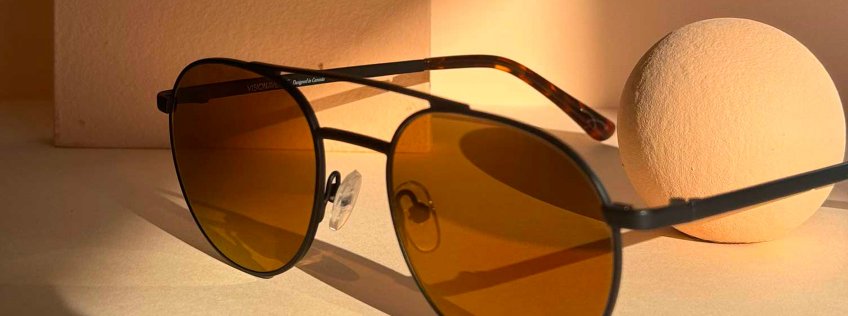
Blue Light: Myth or a real danger for your eyes?
by Optoplus / January 2019
We often hear about blue light, but do we really know its impact on our eye health? Despite this danger, are there solutions? In this article, optometrists answer your questions and offer great solutions and advice.
Demystifying Blue Light
Blue light is not a myth. Optometrists will tell you, blue light is a real danger to your health. Although we do not talk enough about it, blue light is a harmful factor to the human eye and eyesight. Our eyes can be very sensitive to light frequencies in the visible light spectrum. Some forms of blue light, such as blue-turquoise light, is actually beneficial to the human eye as it helps the eye secrete melatonin, thus promoting a healthy sleep cycle.
However, other types of blue light, such as those coming from artificial sources (fluorescent light and screens) are very harmful for the eye, especially over extended periods of time. When we look at our cell phones or computers for extends periods of time, we tend to blink less, causing our eyes to become dry. In the long run, this can have a big affect on one’s vision, going as far as to contribute to eye disease and eye disorders.
Risks Associated to Blue Light
Risks associated with prolonged exposure to blue light are numerous. They include eye disease, troubled sleep and eyestrain. If you’re like most people, you look at your cell phone before going to sleep. When our eyes are exposed to blue light right before going to sleep, it can influence our “inner clock” and our melatonin levels which affects our sleep quality. This blue light causes sleep disturbances and insomnia as our brain has been overexposed to blue light.
In addition to being associated with a higher prevalence of certain cancers, blue light causes eyestrain and affects visual performance. Even with glasses and an up-to-date eye exam, blue light makes it difficult to distinguish details and contrast in addition to creating a constant glare in your field of vision.
In the short-term, blue light can cause discomfort, visual fatigue and may affect your visual performance. As for long-term, blue light increases the risk of developing cataracts and increases risk of age-related macular degeneration (AMD).
Solutions
When using your tablet, it is advisable to install an anti-blue light filter to protect your eyes and reduce the brightness in order to help avoid glare. It is also advisable to blink more often to reduce your chances of suffering from dry eye symptoms, eye pain and visual fatigue by overexposure to blue light. Limiting screen exposure to less than two consecutive hours and not using your tablet or any other electronic device right before bed can also help. Optometrists also recommend specialized glasses with a yellow filter to protect your eyes from the undesirable effects of blue light.
Eating healthy has its benefits! A diet that is rich in leafy greens and fruit helps increase protection of retinal pigments and counters some of the harmful effects of blue light. So in addition to having a healthier diet, you can help improve your visual quality.
You are now more informed on the harms caused by blue light, that it disrupts the biological clock and causes vision problems. At OptoPlus, our optometrists will advise you on how to protect your eyes from blue light and offer solutions adapted to your needs and the results of your eye exam!
Share this article





